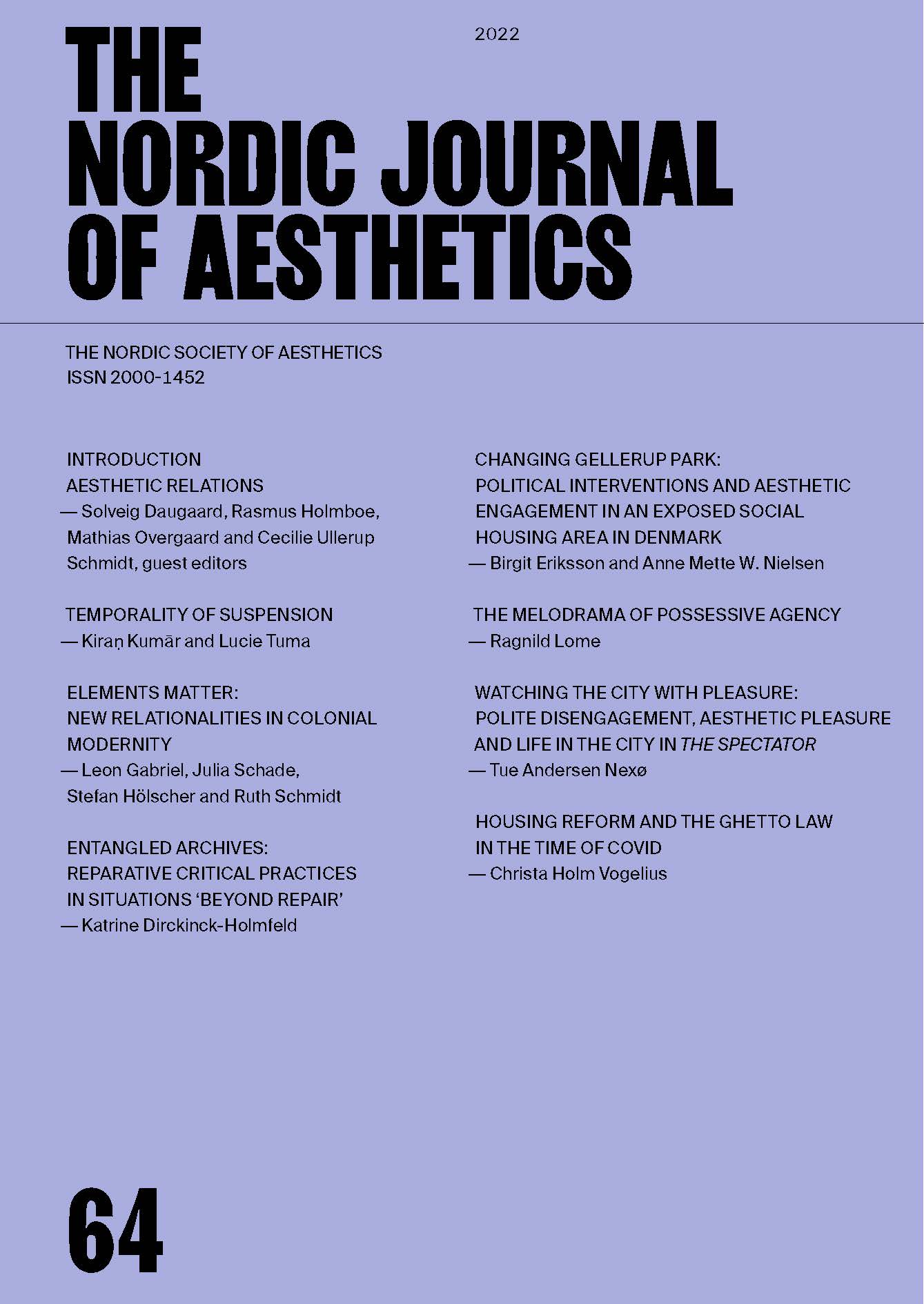Watching the City with Pleasure
Polite Disengagement, Aesthetic Pleasure and Life in the City in The Spectator
DOI:
https://doi.org/10.7146/nja.v31i64.134223Keywords:
Aesthetic pleasure, Intersubjectivity, 18th century, Representations of the City, The SpectatorAbstract
The essay examines the intersection between aesthetic the-ory and representations of the city in the periodical essay The Spectator (1711-1714). Focusing on this intersection allows for an analysis of the cultural work aesthetic pleasure is supposed to do according to The Spectator, and also shows key differenc-es between “spectatorial” and later, Kantian aesthetics. In The Spectator aesthetic pleasure has to do with producing a model for how one should relate to the realm of politics—rather than disin-terest, the precondition of aesthetic pleasure turns out to be disengagement. Read through the lens of the city, aesthetic pleasure turns out to be a key component in The Spectator’s vision of how to live a good life as a privileged subject of a modern state.
Downloads
Published
How to Cite
Issue
Section
License
Copyright (c) 2022 Tue Andersen Nexø

This work is licensed under a Creative Commons Attribution 4.0 International License.
Authors who publish with this journal agree to the following terms:
- Authors retain copyright and grant the journal right of first publication with the work simultaneously licensed under a Creative Commons Attribution License that allows others to share the work with an acknowledgement of the work's authorship and initial publication in this journal.
- Authors are able to enter into separate, additional contractual arrangements for the non-exclusive distribution of the journal's published version of the work (e.g., post it to an institutional repository or publish it in a book), with an acknowledgement of its initial publication in this journal.
- Authors are permitted and encouraged to post their work online (e.g., in institutional repositories or on their website) prior to and during the submission process, as it can lead to productive exchanges, as well as earlier and greater citation of published work (See The Effect of Open Access).




